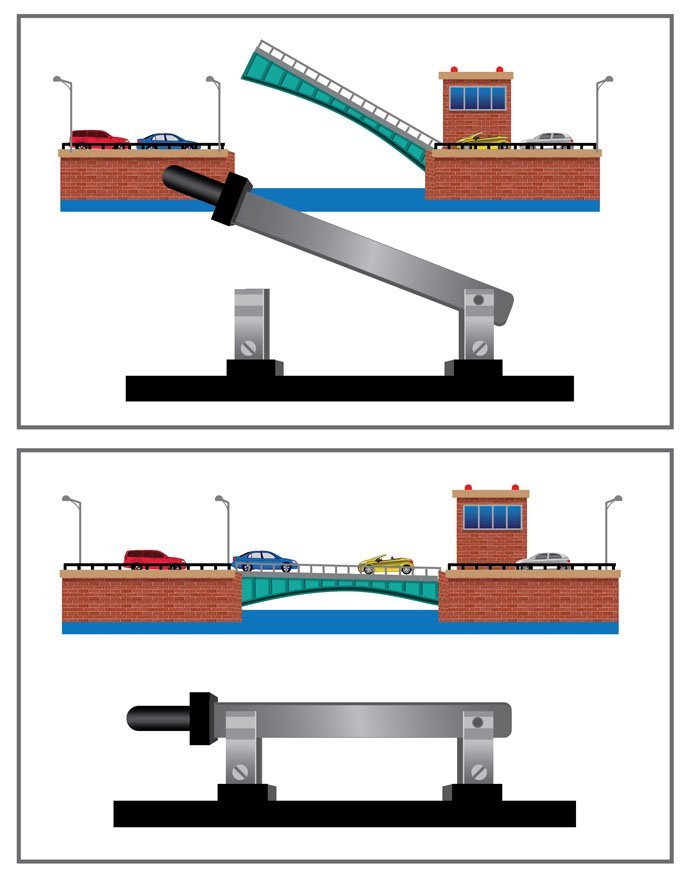Get Tech Tips
Subscribe to free tech tips.
Open and Closed Case

I know I'm gonna get some eye-rolling here, but it needs to be said.
When we teach electricity to new techs, we use a lot of “water” metaphors. We talk about volts like PSI, amps like flow, and watts like GPM (speaking of GPM in HVAC, check out our article on hydronics HERE). Even the word “flow” gives us a vision of water moving.

When we talk switches and circuits, we say “open” to mean no path/no flow and “closed” to mean a path or flow.
That's the opposite of water.
With water, we “open” the tap when we want flow, and we close it to stop the flow.
With a switch, we “close” when we make a circuit, and we “open” when we break a circuit.

Someone pointed out to me that describing an “open” switch or circuit like a drawbridge may be better. Cars (electrons) can move when the bridge is closed and cannot move when the bridge is open.
It struck me that this water metaphor may be one reason newbies struggle to grasp relays.
Or maybe I'm just overthinking it.
—Bryan










Comments
Never thought about it that way, I too was taught basic electrical that way!
Never thought about it that way, I too was taught basic electrical that way!
Good point Bryan. I’m sure that does confuse some techs. When it is fully explained and white boarded, most will get it.
Good point Bryan. I’m sure that does confuse some techs. When it is fully explained and white boarded, most will get it.
They get it eventually. I just realized that the way I was explaining may have been making it more difficult than it needed to be.
They get it eventually. I just realized that the way I was explaining may have been making it more difficult than it needed to be.
Nah you ain’t overthinking it. That’s small basic information that confused me the first time talked I was talked to about switches until it was explained to me.
Something small but very helpful to know.
Nah you ain’t overthinking it. That’s small basic information that confused me the first time talked I was talked to about switches until it was explained to me.
Something small but very helpful to know.
The new breed of tech who goes to school for this should take an electronics course so they can learn gate logic and circuit logic. Especially if they want the big money of commercial/industrial work in the era of green tech.
I don’t agree with the water metaphor. Real service techs need to learn what a circuit is. If they can’t get it then there is always install.
The new breed of tech who goes to school for this should take an electronics course so they can learn gate logic and circuit logic. Especially if they want the big money of commercial/industrial work in the era of green tech.
I don’t agree with the water metaphor. Real service techs need to learn what a circuit is. If they can’t get it then there is always install.
Hmmm. We have a trade that already has a shortage of techs. I wish everyone had an “engineers mind” but we also need to be practical about it.
Hmmm. We have a trade that already has a shortage of techs. I wish everyone had an “engineers mind” but we also need to be practical about it.
We have a trade where half to most mechanical problems are caused by techs who learn by blowing something up. That needs to change.
We have a trade where half to most mechanical problems are caused by techs who learn by blowing something up. That needs to change.
To leave a comment, you need to log in.
Log In